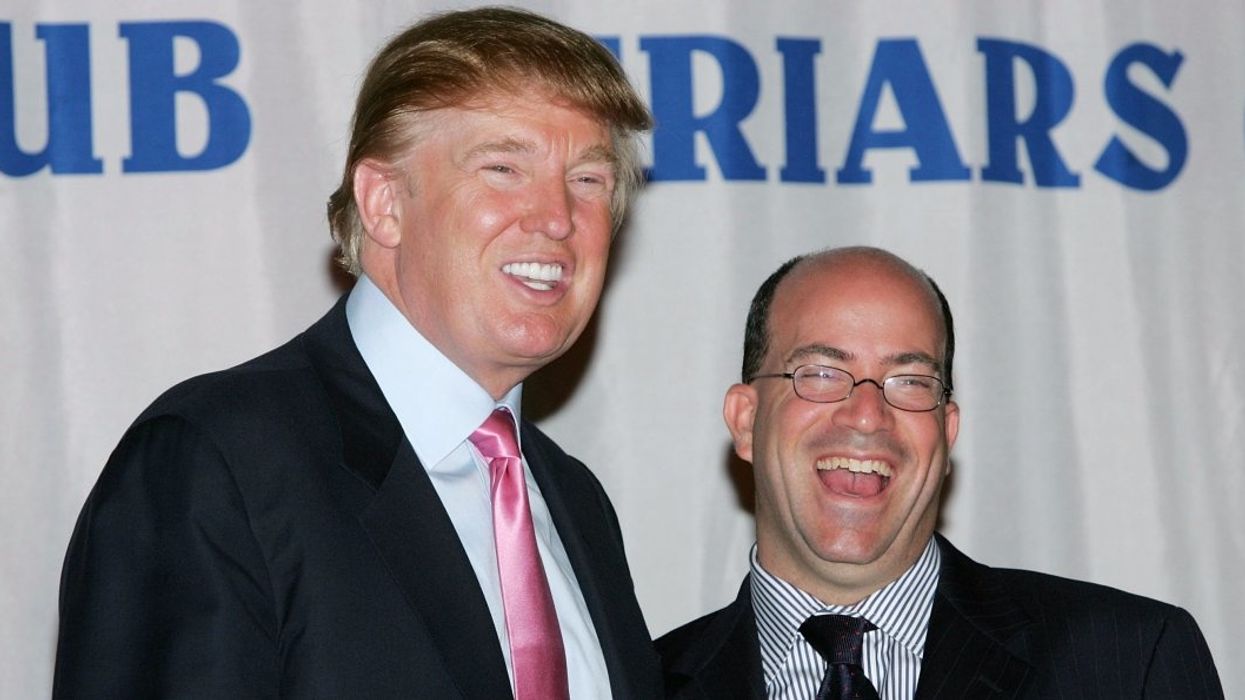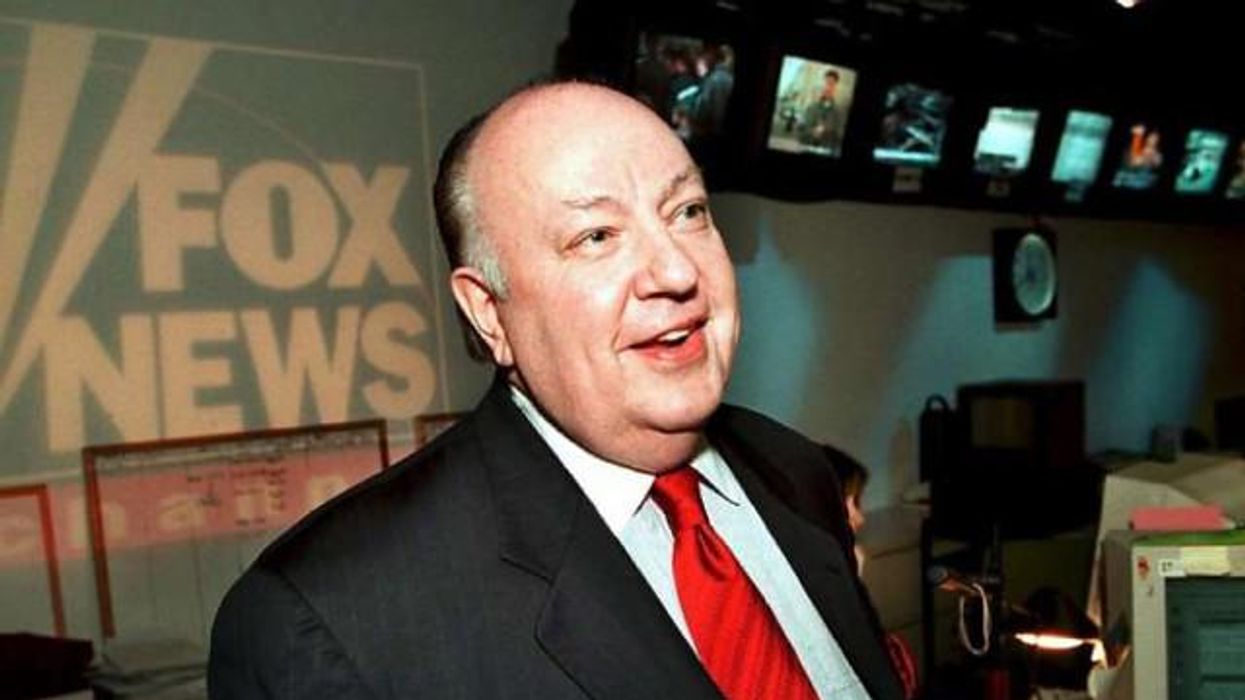The following is excerpted from Lying In State: Why Presidents Lie -- And Why Trump Is Worse, a fascinating new book by historian and media critic Eric Alterman that traces the decline of truthfulness in public life that has led to our present predicament. In his chapter on Bill Clinton, Alterman bluntly discusses the sex lie that led to Clinton's impeachment, but then dissects the deeper layers of hypocrisy that surrounded him in Washington, both on Capitol Hill and among the national press corps. More than one of Clinton's pursuers has since been found guilty of worse sexual misconduct. In certain ways, we are still living with the toxic legacy of the Clinton impeachment more than 20 years later.
The entire panic over the Monica Lewinsky affair and the Clinton impeachment proceedings appear even odder in retrospect than they did at the time. It's not merely that Clinton's sins pale in comparison to those of Donald Trump, with regard to both his sex life and the scale of his lying. It was widely known at the time of the Lewinsky scandal that many of the people who had undertaken the responsibility of investigating and ultimately impeaching Clinton were themselves liars about all manner of criminal activity, including sex crimes far more serious than mere adultery. The House Judiciary Committee that led the impeachment inquiry was chaired by Illinois Representative Henry Hyde, a Republican from Illinois, who—owing to the efforts of the man whose marriage he broke up—was later forced to admit to having had an affair with a married mother of three children while married himself. Hyde chalked up the affair to a "youthful indiscretion" committed when he was just an innocent lad of forty-one.
The final proceedings leading to the impeachment vote began on a decidedly dramatic note when the Republican House Speaker–elect, Bob Livingston of Louisiana, announced that he was resigning from Congress over his own four adulterous affairs, which were about to be exposed by Hustler magazine. Livingston had been chosen by Republicans to replace Newt Gingrich, who had been forced to resign over financial improprieties. Gingrich, however, was no less vulnerable to exposure than Livingston over the issue of adultery: the most recent of Gingrich's numerous affairs had been conducted with a 23 year-old congressional aide who would become his third wife, and it had taken place during both of his first two marriages.

According to L. H. Carter, the treasurer for Gingrich's congressional campaign, Gingrich divorced his first wife, eight years his senior, while she was hospitalized with cancer—because, he told Carter, "she's not young enough or pretty enough to be the wife of the President. And besides, she has cancer." She was forced to sue him for child support. This decision followed a campaign for Congress in which, after his female opponent explained that she would commute to Washington so that her husband might keep his job, and her children could remain in their schools, he distributed fliers reading: "When elected Newt will keep his family together." He later sheltered his $4 million book bonanza from his struggling, non-trophy ex-wife.
Years later, in 2012, while Gingrich was running unsuccessfully for the Republican presidential nomination, he was asked during a debate about some of this history. In response, Gingrich "let loose" with what journalist McCay Coppins termed "one of the most remarkable—and effective—non sequiturs in the history of campaign rhetoric: 'I think the destructive, vicious, negative nature of much of the news media makes it harder to govern this country, harder to attract decent people to run for public office—and I am appalled that you would begin a presidential debate on a topic like that.'"
To replace Livingston in the Speaker's chair, Republicans chose Congressman Dennis Hastert of Illinois. Unknown to Republicans or to the press at the time, their new leader was secretly paying off at least six young men whom he had repeatedly raped while serving as their high school wrestling coach, in exchange for their silence about his crimes. The youngest was 14 at the time. US District Court Judge Thomas M. Durkin termed Hastert "a serial child molester," sentencing him to 15 months in prison, after which he would be barred from possessing "any sex-related telephone numbers," have to install (and pay for) computer software recording all of his online activities, and not be permitted to be alone with anyone under 18.
In Congress, meanwhile, Livingston was succeeded by his fellow Republican and Louisianan David Vitter, who was later forced to resign from Congress over his role in a local prostitution ring. And Tom DeLay, who was the Republican majority whip during the impeachment fight (later replacing Hastert as house majority leader), may not have been involved in a sex scandal, but he was soon to spend three years inside a Texas prison for illegally plotting to funnel corporate contributions to Texas legislative candidates, along with another five years on top of that for money-laundering (later negotiated down to ten years of community service). Former Independent Counsel Kenneth Starr himself was later forced out of his job as president of Baylor University for turning a blind eye to a remarkably vast sexual assault scandal involving alleged rapes, including gang rapes, by thirty-one Baylor football players. Later, he joined the legal team of child-rapist Jeffrey Epstein, helping him secure a shockingly lenient sentence that allowed him to go on committing his sexual crimes against vulnerable young women. Starr's legal team also included Brett Kavanaugh, who in 2018 was credibly accused of repeated sexual attacks in both high school and college—and, despite that, is now a member of the US Supreme Court.
Journalists are not (and should not be) subject to the same sort of scrutiny as public officials, but it seems worth noting that an impressive number of those who guided the coverage of the Clinton sex scandals, often expressing moral outrage over the president's lies, were themselves later embroiled in significant sex scandals—and lied to cover them up. Aggressive coverage of the Lewinsky and Paula Jones stories in the New York Times, for example, was directed, from its Washington bureau, by Michael Oreskes, but NPR put Oreskes on indefinite leave in the fall of 2017, when allegations emerged that he had earlier engaged in inappropriate sexual behavior with members of his staff as well as with job candidates at the Times. The influential inside dopester Mark Halperin, who was political director of ABC News at the time of the Clinton impeachment and later became a political analyst for MSNBC, was extremely harsh on Clinton during the scandal. In the fall of 2017, he, too, was reported to have sexually harassed and assaulted several women, including in company bathrooms. The office bathroom was also said to be the favored location for Leon Wieseltier's bestowal of unwanted physical affection on young women in the offices of his allegedly liberal magazine, The New Republic. These incidents, which he was reported to have carried out in between writing his scathing editorials about Bill Clinton and Monica Lewinsky, led to his dismissal as well.
And the exposés of 2017 were not yet over. In late November, over at NBC, the network's $20 million a year Today host, Matt Lauer, was said to be serially harassing young women. Although he admitted to some of the inappropriate behavior, he emphatically denied the allegations, in one case, of rape. Moreover, according to the investigative reporting of Ronan Farrow, who was later employed at NBC, the news division's president, Andrew Lack, had "pursued sexual relationships with underlings and talent." Lack, too, denied the allegations—and as of late 2019, he was still at the helm of NBC News and MSNBC. Reports of such behavior were decidedly unremarkable at the station's top echelons. A number of other important figures at NBC would be caught up in the scandal as well, accused by women at the network of "harassment or worse," according to Farrow. These included the network's star anchor, Tom Brokaw (who denies the charges); his close confidant and producer, Matt Zimmerman; Hardball producer Phil Griffin (who later became president of MSNBC); and Hardball's extremely outspoken host, Chris Matthews.
At CBS, talk-show host Charlie Rose was apparently greeting young female assistants naked in his home when he was not forcing them to scrub his home toilet. In this respect, Rose was evidently following the lead of accused sexual predators Les Moonves, the head of CBS, as well the abusive chief of that network's news magazine show 60 Minutes, Jeff Fager, who was later fired for having "engaged in certain acts of sexual misconduct" with colleagues and failing to stop similar misbehavior by others. Fager replaced Don Hewitt, whose longtime alleged sexual abuse of a female colleague cost CBS at least $5 million in payouts as part of an agreement that had to be repeatedly amended to account for new information and accusations.
Over at Fox News, top executive Roger Ailes and anchor, Bill O'Reilly, among many others, were accused of casually and repeatedly demanding sexual favors of their younger female colleagues. (Ailes had made his way to Fox after being forced out of NBC for calling a fellow executive there a "little fucking Jew prick.") Thirteen women accused Ailes shortly before his death in 2017. He was said to have pressured some of these women to service his friends and business associates as well, in a manner not dissimilar to that of the criminal sexual predator Jeffrey Epstein. Ailes was reportedly aided in these efforts by his wingman, Fox News copresident Bill Shine, who resigned from the network in mid-2017 and was named President Trump's director of communications in mid-2018. The anchor Sean Hannity, also at Fox, was accused by a female guest in 2017 of making advances that she found "weird and creepy"; she said she rebuffed him (he denied her allegations). All of these people had repeatedly passed moral judgment on Bill Clinton during the Clinton impeachment era, shaping the public narrative about the nature and importance of his lies while, at a minimum, concealing their own actions from their employers, employees, friends, and families—and, more likely, frequently lying about them. This trend—of allegations, denials, firings, and resignations—widely commented on in social media, acquired the label #MeToo.
Owing at least in part to this hypocrisy, a decided disconnect developed over the significance of the Clinton/Lewinsky affair, with Washington insiders—especially those in media circles—on one side, and most of the rest of the country on the other. When Clinton finally came clean following his four hours of videotaped testimony before a federal grand jury in mid-August 1998, he spoke contritely before condemning what he rightly insisted were the considerable excesses on the part of Starr's staff in their pursuit of him. Within the beltway and in television commentary that night, the reaction was almost uniformly severe disapproval. The American people, however, according to the polls, were largely supportive of the president.
...
. Although Newt Gingrich had predicted a Republican gain of anywhere from ten to forty seats in the House, the Democrats picked up five seats. Indeed, the 1998 midterms became only the second time since the Civil War when the president's party actually improved its standing in Congress in a midterm election during a second term in office. The Senate put an end to the shenanigans with a 50–50 vote on February 12, 1999, to reject the charge of obstruction of justice against the president, and a 45–55 vote rejecting the perjury charge. Both would have required a two-thirds majority to pass. In the wake of his impeachment, Clinton's approval rating rose to an astronomical 73 percent.
Although the Republicans did not succeed in removing Clinton from office, the impeachment effort crippled Clinton's ability to pass legislation in the final years of his presidency, just as he might have finally been able to turn to the progressive agenda he had promised his supporters back in 1992. The impeachment also contributed to upending Al Gore's presidential campaign, which took a decidedly passive-aggressive, semi-adversarial stance toward an extremely popular president with a booming economy behind him. The impeachment therefore paved the way for the 2000 election, which was so close and so riddled with voting glitches that the Supreme Court ended up shutting down a vote recount in Florida, ensuring a Republican win. George W. Bush would replace Clinton—and his lies to the American public would turn out to be of far greater consequence than any of Bill Clinton's.
The Republicans ultimately failed to remove President Clinton from office. Their efforts left him far more popular among the voters than when it all began, severely damaging their own popularity in the process. But it is evident in retrospect that the impeachment inquiry represented an important turning point in the decline of truth in America and another giant step on the road toward the Trump presidency.
Adapted from Lying in State: Why Presidents Lie—And Why Trump Is Worse by Eric Alterman. Copyright © 2020 by Eric Alterman. Available from Basic Books.: W





